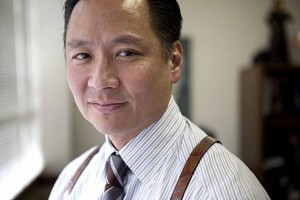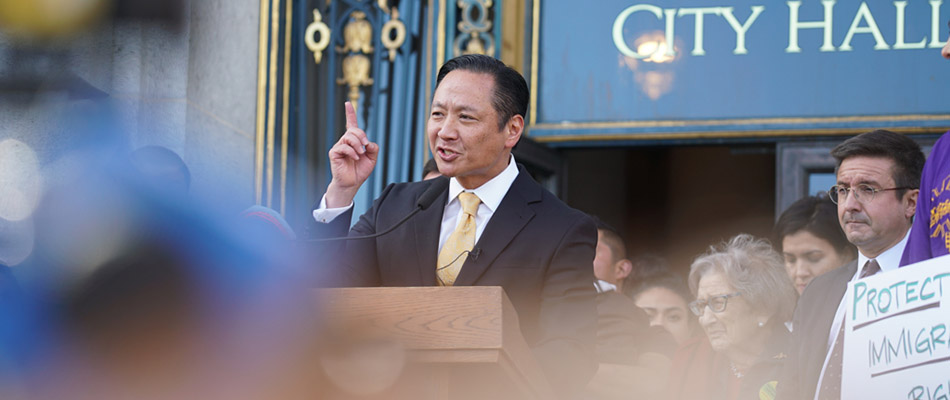
Jeff Adachi
News employee exposed freelance journalist at center of Adachi leak
San Francisco police have flip-flopped between defending the searches and apologizing for them
By Matthew Keys, August 5, 2019 1:35 pm
A newsroom employee led police to a freelance journalist whose home and business were raided in May in connection with the leak of a confidential police report on the death of former San Francisco Public Defender Jeff Adachi.
The reporter at the center of the case, Bryan Carmody, has been working diligently with a team of legal experts to overturn the warrant and suppress evidence gathered from it, including material collected from his cell phones, computers and other devices.
Carmody was targeted by San Francisco police after offering to sell copies of a police report and other materials shortly after Adachi died in February from a lethal mixture of ethanol and cocaine that was exacerbated by heart disease.
Over the last few weeks, Carmody and his legal team have been successful in getting warrant after warrant tossed out and material from the warrants suppressed in court, meaning the police department would not be able to use evidence gathered through them in future investigations.
But the police were given a slight victory last month when they sought to suppress a portion of one warrant that they said related to a confidential informant who drove police toward Carmody as a person connected with the leak.
In what has become a familiar scene played out through the entire case, the suppressed portion of the warrant itself leaked last week to a San Francisco Chronicle reporter covering the case. Early on in the investigation, a newsroom employee at a Bay Area news company met with a media relations employee at the San Francisco police department with information that Carmody had been offering to sell copies of the leaked police report and other materials, according to the redacted portion of the warrant as reported by the Chronicle.
The California Globe was unable to confirm the validity of the report, and Carmody did not return a request for comment. He has declined to comment throughout the case, saying only that his lawyer advised him not to. It was not clear if the unnamed news employee referenced in the Chronicle’s report was someone at a television station or elsewhere; the Chronicle said it had been approached by Carmody about the report but declined to purchase it from him.
Last week, three additional warrants against Carmody were tossed by San Francisco judges — the same judges who had issued them — including one that was not scheduled to be heard until later this month. In tossing the warrants, the judges agreed that the police were not forthcoming with information that Carmody was a journalist, even though the police department had issued him a press pass.
In their decisions, the judges relied on a long-standing California shield law that affords reporters and other members of the media protections when they refuse to disclose sources to police. Carmody told the California Globe shortly after the raids in May that San Francisco police had threatened him with a federal obstruction of justice charge if he did not comply; at the federal level, no similar shield law exists.
It is unclear if federal charges are forthcoming, though Carmody did tell the California Globe federal agents were present at the raid of his home and business back in May.
Since the raid, San Francisco police have flip-flopped between defending the searches and apologizing for them. Initially, a police spokesperson said Carmody was considered a criminal suspect because there was suspicion he colluded with the source of the material — believed to be a fellow police officer, the agency says — to obtain and distribute the report and additional photographs to members of the news media for a price.
Later, the police chief said mistakes were made in executing warrants against Carmody and suggested they probably would not stand up in court.
- Assemblywoman Jacqui Irwin Proposes Law to Authorize Withholding Autopsy Reports From Public Disclosure - February 28, 2020
- As AG Becerra Seeks Federal Recognition of Consumer Privacy Law, Companies Ask for Relief - February 26, 2020
- New Legislation Would Carve Out Additional Exemptions for Information from California Open Records Laws - February 24, 2020



One thought on “News employee exposed freelance journalist at center of Adachi leak”